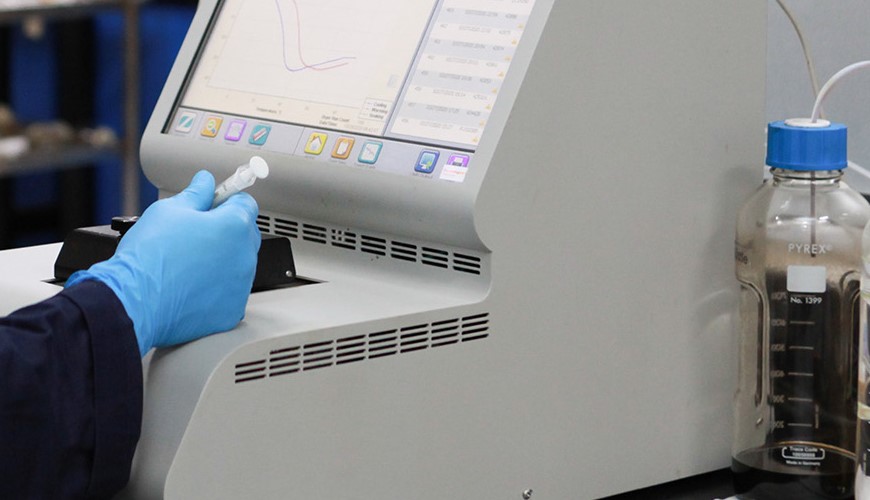

The cold filter plugging point (CFPP) test method is a method used to determine the operability of diesel fuel, biodiesel, mixtures and gas oils at low temperatures. This test method is a critical feature used to detect the lowest temperature at which fuel in a diesel engine system will flow freely through the filters.

All diesel fuels contain wax. At some point, when the temperature of the fuel drops, wax crystals begin to precipitate. If a certain amount of wax precipitates, the crystals block fuel flow through filters and other restricted passages in the fuel system.
The main standards based on these tests include:
The test method defined in the ASTM D6371-17a standard covers the determination of the cold filter plugging point (CFPP) temperature of diesel and domestic heating fuels using manual or automatic devices. This test method applies to distillate fuels, including those containing flow improvers or other additives, intended for use in diesel engines and domestic heating installations. A fuel's CFPP value is useful for estimating the lowest temperature at which a fuel will flow smoothly in certain fuel systems.
The EN 116:2015 standard provides a test method for determining the cold filter plugging point (CFPP) of diesel and domestic heating fuels using automatic test equipment. Manual testing equipment may be used, but only automated testing equipment is permitted for referee purposes. This standard applies to paraffinic diesel fuels as well as fatty acid methyl esters and distillate fuels, including those containing fatty acid methyl esters, flow improvers or other additives, intended for use in diesel engines and domestic heating installations. The results obtained with this method are suitable for predicting the lowest temperature at which a fuel will flow smoothly in the fuel system.
The EN 16329:2022 standard provides an automatic test method for determining the cold filter plugging point of diesel and domestic heating fuels using linear cooling. This method applies to paraffinic diesel fuels, including fatty acid methyl esters and distillate fuels intended for use in diesel engines and domestic heating installations, as well as those containing flow improvers or other additives. The results obtained with this method are suitable for predicting the lowest temperature at which a fuel will flow smoothly in the fuel system.
The IP 309 standard provides a method for determining the cold filter plugging point (CFPP) of diesel and domestic heating fuels using manual or automatic test equipment. Manual testing equipment and automatic testing equipment are both suitable for referee purposes. This method applies to distillate fuels, including those containing flow improvers or other additives, intended for use in diesel engines and domestic heating installations. The results obtained with this method are suitable for predicting the lowest temperature at which a fuel will flow smoothly in the fuel system.
When performing the test, according to the strict rules described in the above standards, a certain portion of the fuel is cooled under certain conditions and drawn into a straw under a controlled vacuum through a standardized wire mesh filter. The test is repeated every time the sample cools by an additional 1 degree. The temperature at which the sample can no longer be filled into the pipette within 60 seconds is the temperature at which the test is completed. The temperature displayed is the CFPP test result.
Refineries employ a number of procedures to increase the low-temperature operability of the fuel, such as treating the fuel with additives or producing it from crude oils with lower wax content.
Among the numerous testing, measurement, analysis and evaluation studies provided to businesses by our organization, there are also CFPP cold filter clogging point test services.
To get an appointment, to get more detailed information or to request an evaluation, you can ask us to fill in our form and reach you.